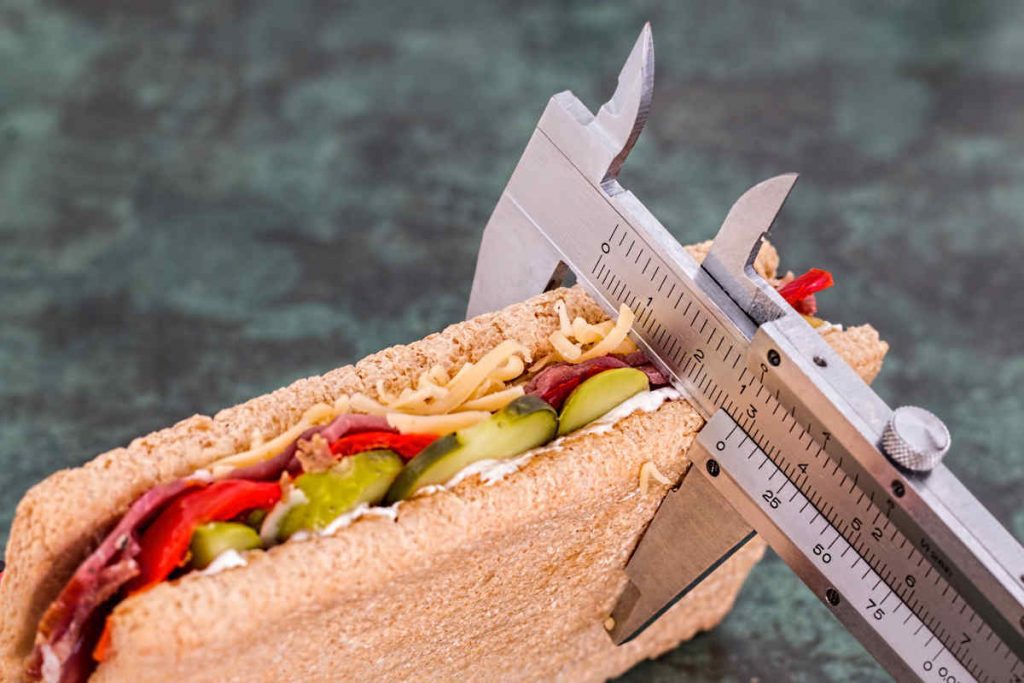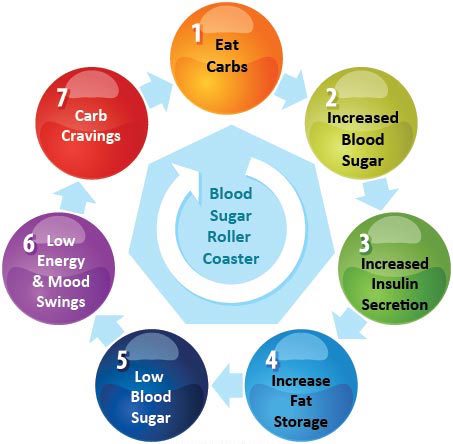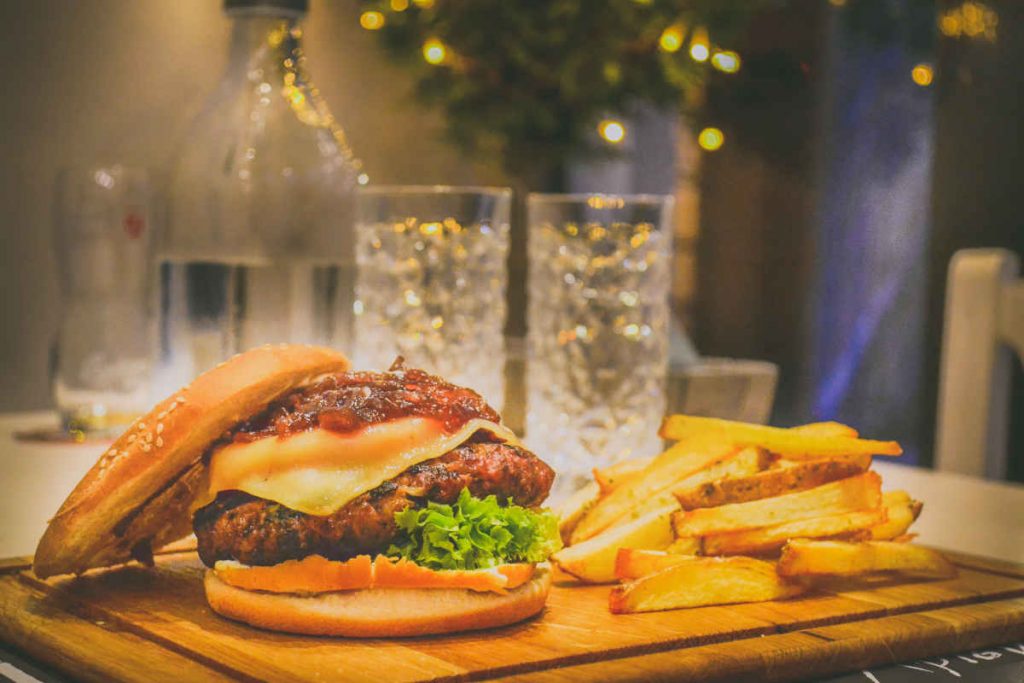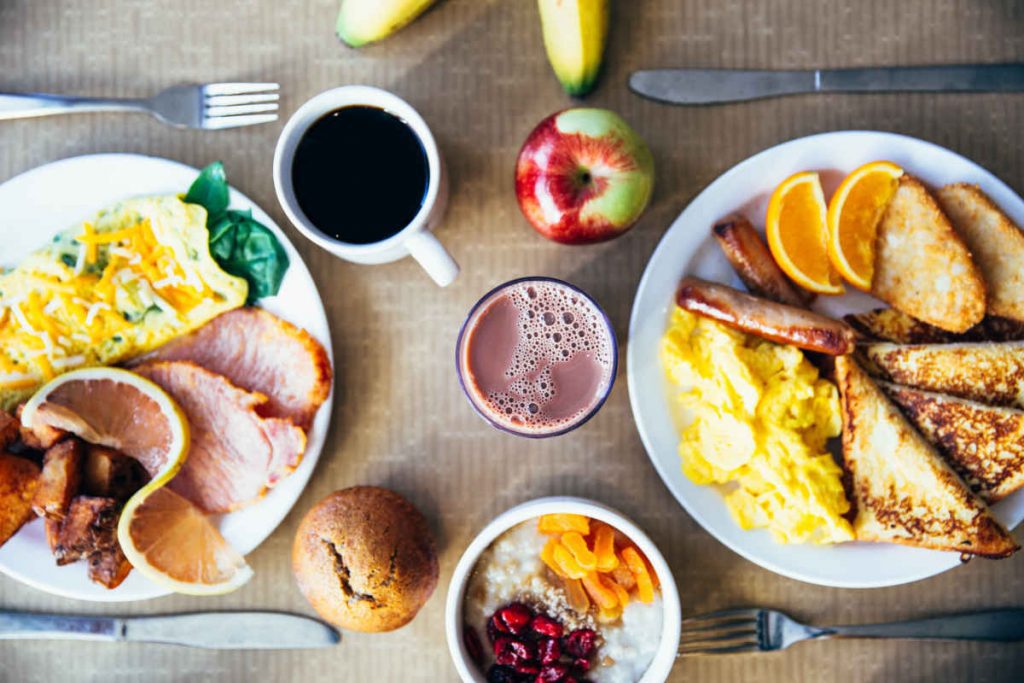
The best online fitness resource you'll ever need. We filter out the BS to ensure you meet your health and fitness goals!

The best online fitness resource you'll ever need. We filter out the BS to ensure you meet your health and fitness goals!

All around the world people are trying lose use weight, and along with this mass movement of “weight loss” products, programs and all manner of gimmicky ideas, there are certain myths circulating the industry like a bad smell left to fester.
An estimated 160 million Americans are either obese or overweight. Nearly three-quarters of American men and more than 60% of women are obese or overweight, which when you think about it is pretty damn scary[efn_note]http://www.healthdata.org/news-release/vast-majority-american-adults-are-overweight-or-obese-and-weight-growing-problem-among[/efn_note].
But how can this be?
Health and fitness trends have grown substantially over the last 10 years alone. People are smashing the gym, drinking green smoothies, eating alfalfa beans, and eating mushrooms harvested from the sacred tombs of the gods.
Well today I’m going to reveal to you the 4 biggest weight loss myths in the industry, and why they’re sabotaging so many people’s efforts to lose weight, be healthy and look great.

This one has a place in my heart as one of the funniest myths out there, which sadly people cling to for comfort as they’re pulling up to the McDonald’s drive-through.
Calories are most certainly NOT created equal, and you only need to consider fast food as an example to realize how ridiculous this is.
If this were true you could eat McDonald’s every day, maybe even every meal, and as long as you stay within your “calorie allowance”, you can still lose weight.
The thing is not all calorie sources have the same effect on your body. Different foods go through different biochemical pathways, and some of these are incredibly inefficient, causing calories to be lost as heat[efn_note]https://www.ncbi.nlm.nih.gov/pmc/articles/PMC506782/[/efn_note].
Others, for example protein, can boost your metabolism, reduce cravings and appetite, whilst optimizing the function of weight-managing hormones like Ghrelin and Leptin. Let’s get into a bit more detail here.
Fructose and Glucose
The two main simple sugars in your diet are either fructose, or glucose. If you measure the two, gram for gram they’re the same number of calories, but the body metabolizes them completely differently.
Glucose can be metabolized (used by the body) by any of your body’s tissues, whereas fructose can only be metabolized by the liver in limited quantities[efn_note]https://www.ncbi.nlm.nih.gov/pubmed/17921361[/efn_note].
Another problem with fructose is it doesn’t stimulate the satiety centers of your brain, which means you won’t have that feeling of fullness that you otherwise would have with other foods.
Fructose has also been shown to increase insulin sensitivity, increased belly fat, and higher blood sugar levels, which in extreme consumption can lead to conditions like diabetes.
That is just one prime example of why not all calories are equal, but another would be the thermic effect of food.
What does that mean?
Well every time you eat something, whether it contains protein, fat or carbs, each of these macronutrients requires different amounts of energy to digest and absorb.
I won’t quote you any specific numbers here because the jury’s still out on the exact numbers and percentages (refer to the table below), but what is clear is protein requires a much greater thermic effect to be digested and metabolized by the body.
| Macronutriet | % energy used to absorb |
|---|---|
| Protein | 20-25 |
| Carbohydrates | 5-15 |
| Fat | 0-5 |
So if you want to give yourself the best chance of losing weight, then a high protein diet is the order of the day[efn_note]https://www.ncbi.nlm.nih.gov/pubmed/11838888[/efn_note].
You must also consider that more fibrous foods like vegetables and fruits tend to be more filling, as opposed to eating sweets or fast food. So if you opt for a high protein diet, combined with a decent fat content and plenty of fibrous vegetables, your energy levels won’t spike and you’ll be less inclined to reach for the cookie jar during the day.
The Glycaemic Index basically provides a general ranking system of the different types of carbohydrates in food in terms of their effect on our blood sugar levels.
In the health and fitness industry, many experts can’t agree on the same thing. However, one thing pretty much every expert worth their mettle agrees on, is that refined carbohydrates are not good[efn_note]https://www.ncbi.nlm.nih.gov/pubmed/12081850[/efn_note].
This includes fructose, and other simple sugar containing foods like bread and pasta.
Because these refined carbs are so low in fiber and are digested and absorbed quickly, they illicit blood sugar spikes.
When this occurs, it leads to a crash in blood sugar several hours later. As a result, your body then craves sugar snacks and other refined carbs that most certainly aren’t on your list of angel foods.

This is something called the “blood sugar rollercoaster”, which by definition is incredibly hard to get off of!
The speed at which carb calories hit your energy system, directly affects the chances of becoming overweight and even obese.
I personally wouldn’t recommend a carb heavy diet, but if you’re on that particular path, be sure to opt for carbs high in fiber to slow down the digestion process, and the speed in which it’s absorbed into the body.
With all this being the case, anyone who believes that all calories are created equal will have a hard time losing any weight, not to mention put themselves at risk of various hormonal problems, which in turn make it an even harder endeavor!
So bottom line, focus on the quality of your food rather than the calories in them. Yes, calories count for something, but it’s your body’s ability to utilize the food properly for energy, instead of storing it as fat that really matters.
If you think that losing weight is going to be a straight path through the woods, you’re sorely mistaken.
You’re going to get lost a few times and get caught in some bushes, so to speak. The process isn’t linear and you may gain weight some weeks, others you may lose it. But as long as the overall trend is down over the course of each month you’ve nothing to worry about.
Sometimes you have food in your digestive system moving the needle in the wrong direction, other times you have higher water retention (especially if you’re a lady and it’s that time of the month). If you’ve come off a very high carb meal, the glycogen stores in your liver and muscles will add to the weight on the scales.
Excess water weight can weigh a metric ton when you’re keeping a beady eye on the scales, painfully watching every pound that you lose.
But the key to long term success with weight loss is having faith in your process, and constantly taking action on a daily basis, i.e. working out, eating right, all that good stuff.
You’re always one injury away from losing muscle mass, or one bad month away from seeing all that weight pile back on. The only way to sustain your weight loss goals, is to look at it as a lifestyle change. You might not see the results on a day-by-day basis, but if you stay the course over the weeks and months, you’ll see the results you’ve been working hard for.

Oh dear, this one’s a doozy. Unfortunately, if it’s something you believe in personally, it’s most likely because of the government guidelines and messaging that’s got you thinking this way. So in a roundabout way, it’s not your fault.
The truth is that fat does NOT make you fat per se, but then anything consumed in excess can make you fat anyway. So if you’re putting away a lot of fat, alongside junk food, booze, and a mountain of other crap on a regular basis, then yes, you’re going to get fat.
But as a general rule, fat is actually very important to lose weight, contrary to popular belief that eating fat, will by definition mean you hold on to that fat.
There are numerous studies that show high fat diets being extremely effective in weight loss. This is largely because of the effect it has on the satiety regulating hormone leptin, and the fact that eating a high fat diet, will eventually result in the body switching to fat as its primary energy source. In other words, it’ll start burning the stored fat if you start fueling your body in a different way[efn_note]https://www.healthline.com/nutrition/23-studies-on-low-carb-and-low-fat-diets[/efn_note].
But it is understandable why people think eating fat will make you fat, especially when you consider that fat has a higher caloric count gram for gram than carbs and protein. But let me explain why this isn’t the case.
The first stage is when sugar – and remember, all processed carbs including bread turn to sugar – spikes your fat-storing hormone insulin.
Insulin then drives all available energy to the fat cells in the body from your bloodstream, particularly fat cells around the midriff (your belly fat). This then stimulates your brain to eat more, even though there’s a good chance you don’t actually need to.
Eating Fat Helps You Burn Calories
How about another mindbender?
Eating more fat than carbohydrates in your diet, has been shown to burn more calories over the course of the year than those who consume a higher grammage of carbs over fats.
Kevin Hall, from the National Institutes of Health, who studies mathematical systems and biology discovered this phenomenon through measuring every breath, every ounce of food, and every movement and calorie burned. I bet that took some dedication!

Yes, studies will tell you that people who eat breakfast tend to weigh less than those who skip it altogether.
But here’s the thing, the likelihood is that those people have other habits that are detrimental to their health, and therefore will more likely be fatter than their breakfast munching counterparts.
This was something that’s actually been tested in a huge controlled trial involving hundreds of people. And the outcome suggested there being no difference in weight loss, in relation to whether you ate breakfast or not[efn_note]https://www.ncbi.nlm.nih.gov/pubmed/24898236[/efn_note].
The thing, as long as you eat when you’re hungry and not for the sake of it, you can’t go far wrong. The issue with so many people is they eat according to how they “feel” emotionally, or their hormones are all over the place, so to speak, that they don’t actually know when they NEED food. At this point, natural satiety goes out the window, and is replaced by random snacking and odd meal times.
As a result, your body never really gets into a routine of eating, and the metabolism is extremely ineffective, making it so much harder to drop body fat.
The bottom line is SOME studies have shown that the belief that you “need to eat breakfast to boost metabolism”, just doesn’t hold up from a scientific point of view. Others have shown that eating breakfast activates the thermogenesis process in the body, therefore kickstarting your metabolism for the day.
But as you can see there’s arguments either side of the fence.
I genuinely believe that if you’re hungry, then eat. If you’re not, then don’t eat. Simple advice I know, but it’s also the most sound advice you’ll get on the subject.
The key is to give yourself enough time in the morning to make the decision either way. Because if you’re rushed off your feet simply because you didn’t get up early enough, there’s a higher chance you’ll skip breakfast regardless of whether you feel hungry or not, and that’s not a good place to be.
I hope you haven’t fallen foul of the 4 biggest weight loss myths discussed here. In any case, even if you have, you now have the knowledge to make a few changes in your life to help you in your weight loss journey.
But before you go, if you know someone who swears blind to any or ALL of these myths, share this with them sooner rather than later. And be sure to keep an eye out for future myth busting sessions with us… if your brain can handle it 😉